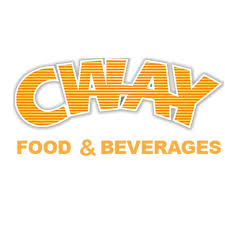1
In today’s hyper-connected world, brands do not need weeks or months to fall from grace.
A single tweet, a poorly handled complaint, or the wrong public response can undo years of carefully built credibility.
The digital age has created a reputation battlefield where perception is everything, and mishandling sensitive issues can quickly turn into a full-blown public relations (PR) crisis.
In Nigeria, two recent incidents, the Eric Umeofia/Chioma OKoli episode and the Air Ibom/Comfort Emmanson saga, have underscored this painful reality.
These cases show how brand custodianship, or lack of it, can determine whether a company rides a storm or is consumed by it.
Both point to the same lesson: reputation is fragile, and the smallest mishandling of issues can send a brand into free fall.
At this juncture, it is expedient to unsentimentally recall how the “Erisco Foods/Chioma Okoli “Nagiko Tomato Mix” case”, highlighting how a simple product review turned into a high-stakes legal and reputational nightmare.
On September 17, 2023, Chioma Okoli posted on Facebook that she had tried “Nagiko Tomato Mix”, a popular tomato paste brand from Erisco Foods, and found it excessively sweet. She asked her followers for their opinions.
Within days, Erisco Foods, led by its CEO, Eric Umeofia, labeled her claim “untrue and unfounded.”
Umeofia publicly accused her of being part of a malicious campaign to sabotage the brand, even suggesting powerful competitors were behind the post.
Then, Erisco petitioned the Inspector General of Police, triggering Okoli’s arrest days later in Lagos. She was whisked to Abuja for interrogation.
Okoli, alleges that during the interrogation, Umeofia berated her, demanding she name who paid her to sabotage the brand and forced her to issue a written apology, which she says was coerced.
In fact, she was charged under Nigeria’s Cybercrimes (Prohibition, Prevention, etc.) Act, 2015, accused of “instigating people against Erisco Foods knowing the information was false” and of conspiracy, crimes that attracted penalties up to 3 to 7 years in jail or hefty fines.
In May 2024, Okoli was remanded in Suleja Correctional Centre in Abuja. Her lawyer disclosed that she suffered a miscarriage during this ordeal. She was granted ₦5 million bail with two sureties in late May 2024.
It would also be recalled that a Federal High Court restraining order issued in November 2023 barred authorities from re-arresting her.
Despite that, there were attempts to re-arrest her, prompting public outrage. The matter was adjourned, with trial dates shifted into early 2025.
For the sake of clarity, the essence of Erisco’s N5 billion civil suit is for defamation, brand damage, and loss of business.
Expectedly, the case quickly became a lightning rod for debate on free speech, consumer rights, and the limits of defamation law.
Critics called the company’s response “litigious, thin-skinned,” noting the absurdity of criminal charges over a taste-based comment.
In a similar vein, Mr. Dominic Uwem, a brand strategist said, Erisco foods bungled the opportunity of turning the crisis to its favor, noting that the management of the company had two options at the beginning of the saga and that none involved the police.
He said, the management ought not to have replied Chioma Okoli instantly by involving the police.
Rather, the company would have assured the public of carrying out an investigation over the issue, and then invite Chioma for a facility visit or factory tour, and even ask her to meet the CEO.
During the meeting, the CEO could have offered to give her some of the tomato pastes and ask if she can cook with it for everyone and let all management team eat the food together with her. She will gladly accept that offer.
Uwem further noted, “Supposing Erisco Foods invited Chioma, it would have being an opportunity to advise her to cook with the tomato paste. The moment could have been captured on camera, and beamed to the world on network news, and let everyone watch the moment she cooked with the tomato.
Also, the news would have given the world the opportunity to see her do the cooking, and watch her eat the food with the CEO as well as other management staff on a dining table.
In the same vein, the facility visit or factory tour would have offer the opportunity for the company to gift her a few cartons of the tomatoes paste as gifts, sponsor her transportation fare back home, and watch her dispassionately review the product again based on her experience at the factory.
In fact, the food company bungled the opportunity offered through the negative mention of the product by Chioma, and it could not have being that bad if a good PR Consultancy firm was contracted to manage the crisis.
In fact, Eric Umeofia’s case with Chioma highlights how brands sometimes mismanage consumer grievances. Reports show that, Chioma, an everyday customer with a legitimate concern, turned into a social media sensation after her case was ignored and trivialised by a company that should have been more responsive.
Instead of adopting a conciliatory tone and addressing her concerns swiftly, the brand’s communication strategy, or lack thereof, came across as dismissive. What followed was a wave of outrage across X (formerly Twitter), Facebook, and WhatsApp groups, with hashtags amplifying the story until it spilled into mainstream media.
For Dr. Uche Nworah, a public relations expert and brand strategist, the fallout was not surprising. “In crisis management, speed and empathy are everything. Once people feel you don’t care, you’ve lost them.
Dr. Nworah added that the brand in question eventually responded, but by then, the damage was already done.
So, what could have been a small issue resolved privately became a brand-damaging fiasco because of delay, arrogance, and tone-deafness.
In a similar vein, Air Ibom and Comfort Emmanson’s case also stand out as a mismanaged Aviation story.
The aviation industry, by its nature, thrives on trust, safety, and perception. This makes the mishandling of any customer issue particularly dangerous.
The Air Ibom/Comfort Emmanson case is a textbook example.
Emmanson, a passenger who had a misunderstanding with one of the air hostesses, Mrs. Juliana Edward, over the switching off of her phone while onboarding the aircraft, felt mistreated by Air Ibom staff. Instead of handling the misunderstanding with her tactfully, reports indicate that the situation was mishandled both at the airport and later in the brand’s communications team of the airline. Instead of calming the waters, the airline’s defensive posture inflamed public anger.
Soon, social media erupted with viral posts painting the airline as insensitive and arrogant. For a brand still building its reputation in the competitive Nigerian aviation space, the backlash was damning.
According to an Aviation PR Expert, who pleaded for anonymity, “Airlines are in the service business. The passenger is not just buying a ticket; they are buying confidence and peace of mind”.
Contrary to the foregoing view, as gathered from not a few respondent, Ibom Air was bombarded with backlashes as Comfort was not in any way treated as a customer.
At this juncture, it is expedient to analytically state reasons why mishandling of issues in any given industry can spark PR crisis. Not only had both cases showed a recurring theme: it is rarely the issue itself that destroys reputations; it is how the brand handles it. A delayed response, a defensive stance, or outright silence as Dr. Uche Nworah puts it can escalate a minor problem into a PR inferno.
The mechanics of today’s communication ecosystem mean that customers wield unprecedented power. A simple smartphone post can reach millions within minutes. Brands no longer control the narrative; at best, they can only shape it by acting quickly and responsibly.
According to Tolu Adeniyi, a PR practitioner with over two decades of experience, “Reputation is like glass. You can build it up over decades, polishing it carefully, but the smallest crack can shatter everything. Brands that underestimate this truth are often caught unprepared.”
According to Mr. Dan Modebe, a brand strategist, “The Eric Umuofia and Air Ibom/Comfort Emmanson cases are cautionary tales for brands. They remind us that issues do not become crises by themselves, it is mishandling that transforms them. In an era where perception is amplified, brands cannot afford to be careless with customers”.
As gathered by Daily Independent from the comments of not a few industry experts, reputation is the most fragile asset a company owns.






